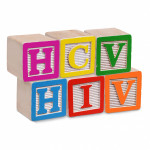Aggressively scaling up testing and treatment of hepatitis C virus (HCV) among HIV-positive men who have sex with men (MSM) in Melbourne was associated with a steep decline in hep C in this demographic, aidsmap reports.
HCV is commonly transmitted through condomless sex among MSM, as well as through injection drug use.
Publishing their findings in Clinical Infectious Diseases, researchers from the co-EC study enrolled 198 HIV-positive MSM diagnosed with chronic HCV between 2016 and 2018 at 22 health care practices in Melbourne. Between them, these practices care for about 85% of MSM living with HIV in the city. The group had a median age of 47.
One hundred eighty-six of the study participants began direct-acting antiviral treatment for HCV. Among all participants who started treatment, 84% achieved a sustained virologic response 12 weeks after completing therapy, considered a cure. Of the 163 men who completed treatment and attended their 12-week follow-up appointment, 98% were cured.
At the study’s trial sites, between 2,434 and 3,476 MSM were receiving HIV care during any given year between 2012 and 2019. This amounted to 13,801 of cumulative years of follow-up for the study’s analysis.
Among these men, 50% to 60% received HCV antibody testing annually, and 10% to 14% tested positive annually. The annual rate of positive tests among those who were initially HCV negative declined by 83% between 2016 and 2019, from 54% to 9%.
The rate of HCV diagnosis declined by 25% annually between 2012 and 2019, from 1.7 diagnoses to 0.5 diagnoses per 100 cumulative years of follow-up.
“High treatment effectiveness by nonspecialists demonstrates the feasibility of treatment scale-up in this population,” the study authors concluded.
To read the study abstract, click here.
To read the study abstract, click here.







Comments
Comments